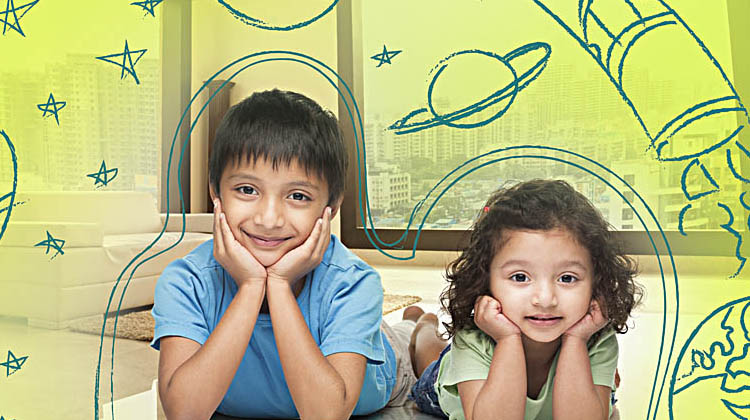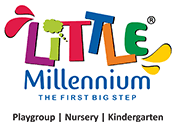
Preparing 21st Century Children For A Global World
‘We cannot always build the future for our youth, but we can build our youth for the future.’
Franklin D. Roosevelt, Former US President
Today, a good academic education is no longer the only pathway to prepare children for the future. Young learners also need certain key skills to take advantage of the unique demands and opportunities that await them in the 21st Century. These critical skills which should be inculcated in a preschool child are:
• Critical Thinking and Problem Solving
• Creativity and Innovation
• Communication and Comprehension
• Collaboration
Our children are living in a world that is significantly different from yesterday. Newer technologies have risen and enhanced the way we live, work and collaborate. Rapid globalisation and technological revolution has brought about, and will continue to bring, changes quicker than ever before. It is intriguing to imagine the future and the fascinating change it will bring.
We might not be able to envisage the tomorrow, but we do know that our children will graduate into a world that will be radically different from today. Their academic, professional and personal lives will be full of innovative challenges and novel opportunities. By equipping them with the key 21st Century Skills, we will ensure that our children are adequately prepared to take on and address these challenges and opportunities, and be successful in this ever-changing and inter-connected environment.
In this century, knowing is not enough. The ability to use that knowledge, in different ways, to solve problems, is crucial to succeed in an increasingly competitive and global 21st century. Problem solving and critical thinking skills need to be fostered to help children, not just know facts, but have the capability to understand and analyse them, infer from them, connect and transfer them to other concepts, evaluate and manipulate them, put them together in new ways, and apply them to find solutions to new problems.
Critical thinking also leads to development of other skills, such as a high level of concentration, deeper analytical abilities, and metacognition, or the ability to think about one’s own thinking.
To be an effective critical thinker, one also needs to be creative and innovative. Successful problem solvers create many original and unusual possibilities to solve problems. Author and business thinker, Daniel H. Pink, in his book A Whole New Mind, claims that we are moving from a logical and linear Information Age to an inventive and empathic Conceptual Age. People with right brain thinking capabilities, like artists, inventors, designers, storytellers and big picture thinkers, will rule this century. Right brain characteristics, like creativity and inventiveness, will equip our future generations to look critically towards the big picture and come up with unconventional ideas and solutions.
Communicating effectively and clearly has always been one of the key factors for success. However, advances in communication technology in the 21st century demand exceptionally refined communication skills. Children must be able to communicate with speech and text through multiple communication mediums. Good communication skills are needed to not just express thoughts and ideas, articulate opinions, and communicate coherent instructions, but also to listen effectively to decipher meaning and intention in an increasingly inter-connected and multi-lingual environment. Strong communication and comprehension skills are also becoming increasingly important to analyse, process and effectively use or leverage the tremendous inflow of new information in this fast evolving world.
Collaboration is another key skill that children need to imbibe, in this complex and increasingly shrinking world. Sharing responsibility for collaborative work, willingness to help and make compromises towards a common goal, value individual contributions in a team, effectively and respectfully work with culturally diverse teams, is needed to meet the 21st century demands and flourish in an inter-connected world.
Parents, today, need to focus on building these critical 21st Century Skills from early childhood, as a child’s brain is twice as active, as that of an adult’s, during the first six years of their life. In these formative years, they actively seek knowledge. Their natural inquisitiveness and spontaneity to learn must be nurtured, as it will lay the foundation for all their future learning. The right learning experiences during these years will have a great impact on development of their future intelligence.
Inculcating 21st Century Skills with life or career skills like flexibility and adaptability; responsibility and accountability; initiative and efficiency, inter and intra-personal skills, is what is needed to help us raise competent global citizens for a global world.
Children who will have the knowledge and skills to be unfazed by constant change and reinvent themselves for new jobs, situations and lifestyles, will succeed in this continuously changing century.
